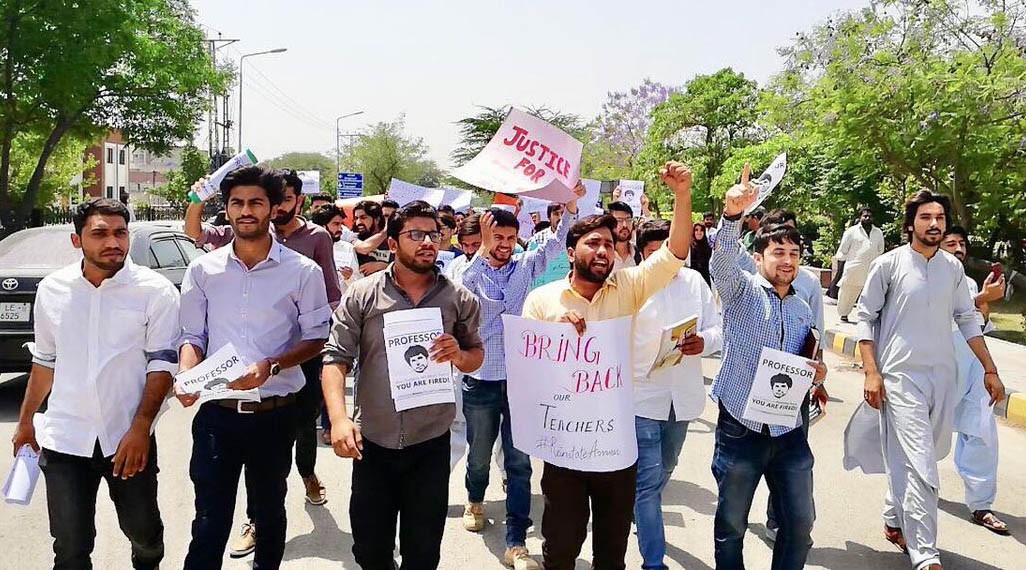
Should journalists and academics be discouraged from critical thought?

An editor recently asked a reporter to look into the case of a journalist who had been picked from a university function in Karachi by men alleged to be from a military agency. The reporter responded that this wasn’t really a big story as it wasn’t a case of the press being browbeaten or intimidated because (wait for it)… "that person wasn’t a journalist… he was an activist."
The remark was a stunning reflection of how journalists are now expected to be robotically neutral entities with no real opinions or political stance of any kind. This sort of thinking has been propagated increasingly over the past decade so that now the accusation of ‘activism’ is used as a stick to beat not just journalists but also academics.
However, the interesting thing about the activism label is that it is something that is used to undermine only those professionals with views that challenge a right-wing, capitalist reality. You may have noticed that academics and journalists with right-wing views, who may be ‘activists’ for various ideologies and causes, are rarely accused of this ‘professional failing’.
Academia and journalism are professions where individuals need to question, research, evaluate and analyse information; they need to have the ability to assess all sides of a story and be able to see things in a new or different light or through a lens that brings elements of a story into a sharper focus than previously possible. But this does not mean that they should be devoid of opinions or be compelled to be silent on questions of social justice or oppression.
When General Ziaul Haq overthrew an elected government and launched an era of brutalisation and repression in Pakistan, many editors and journalists spoke out against the military government and questioned its legitimacy. Were those journalists any less professional because they pointed out constitutional violations and repressive measures? Or were they brave and principled people?
That was an era where the military government had journalists flogged in public -- a brutal and humiliating spectacle which was meant to teach journalists a simple lesson: that they shouldn’t challenge those in power and they shouldn’t have anything remotely resembling opinions or principles.
A new version of this repressive attitude has become prevalent over the past decade: news organisations discourage their staffers from articulating opinions that are vaguely critical of the status quo yet they see nothing odd about replicating the official spin on news handed to them by the government or the military or bureaucratic establishment (the Orwellian ‘newspeak’).
Similarly, academics who do not toe a safe establishment line or who encourage their students to practise critical thinking are penalised and singled out as troublemakers. Such was the case of one professor in Punjab recently who urged students to think and form their own opinions about Pashtun Tahafuz Movement (PTM) -- he was sacked and chastised. And this is the case with so many professors in the West who speak out on the issue of Palestinian civil rights or who criticise Israeli policy in any way. Their stance is labelled as ‘activism’, which then is used as a stick with which to batter their professional credibility.
And what of lawyers? This is another professional group that often has large numbers of those wanting to fight for justice and against oppression. Are they supposed to be devoid of any opinion or political thought? Really?
The reason we need to sit up and take notice of how independent thought is being regarded as a ‘professional flaw’ is because a lot of money is now invested in neutralising this sort of thought: so-called ‘think tanks’ hire like-minded academics and provide their work with some sort of legitimacy, and similar sort of patronage structures have been created for journalists.
A brave new world indeed: journalists devoid of views and academics devoid of critical thought…
Best wishes